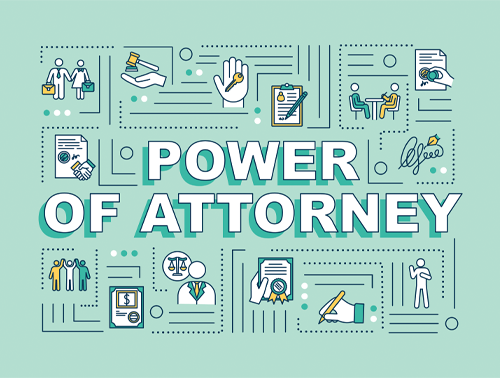
A Lasting Powers of Attorney (LPA) is a document in which you (the Donor) choose one or more people (your Attorney(s)) to make decisions on your behalf and to manage your affairs.
You can only make an LPA if you have the mental capacity to do so. If an individual has lost mental capacity, they will not be able to make an LPA but there are other routes available so that your financial affairs can be looked after for you.
Types of Lasting Power of Attorney
There are two different types of LPAs; one that deals with your Property and Finances decisions and one that deals with Health and Welfare decisions.
- The Property and Financial LPA gives your Attorney(s) the power to deal with your money, property and finances. This includes and is not limited to collecting pensions, paying bills, selling property and transferring funds between accounts.
- The Health and Welfare LPA gives your Attorney(s) the power to make decisions in respect of medical treatment and your well-being needs. This includes and is not limited to making medical appointments, and deciding on medical treatments/surgeries and medication.
You can appoint up to four Attorney(s) and replacement Attorney(s) can also be appointed to step in if the original Attorney(s) are unable to act in the first instance. If there is more than one Attorney, you can choose for them to act jointly or jointly and severally.
What is a Certificate Provider?
Alongside the Donor signing to confirm they are entering into the LPA and the Attorneys signing confirming to be appointed as the Attorney(s), the LPAs require a Certificate Provider (CP).
The CP acts independently to certify that the Donor understands the nature of the document, that they have the capacity to enter into the document and that the Donor has not been pressured or unduly influenced to enter into the LPA. The CP can be someone known personally to the Donor for more than 2 years or a professional with the relevant skills such as our team of legal experienced lawyers here at Howell Jones.
When making an LPA, you can notify individuals that you are making the document and you can also include Instructions and Preferences to give guidance or direction to your Attorney(s).
Once the Donor, Attorney(s) and Certificate Provider have all executed the LPA, the LPA’s submitted for registration with the Office of the Public Guardian and will only take effect when registered.
How and when your Attorney(s) can act under your LPA’s differs depending on which LPA you have put in place.
Health and Welfare LPA
Your Attorney(s) can act only act under the Health and Welfare LPA when the attorney has lost capacity. If the Donor has been detained under Part 4 of the Mental Health Act 1983, the decision in respect of treatment for their mental disorder cannot be made by the Attorney(s).
Property and Financial LPA
Your Attorney(s) can act under the Property and Financial LPA either when the Donor has lost capacity or, if they have not lost capacity, they can only act with the Donor’s consent.
The Mental Capacity Act 2005 is important, and your chosen Attorney(s) must abide by the principles set out by this legislation. This sets out important duties and responsibilities for your Attorney(s). The first principle is that it is assumed that an individual has the capacity to make their own decisions unless proven otherwise. For example, if your Attorney(s) were selling a property then the evidence would be required from medical professionals setting out that the Donor has lost capacity.
At Howell Jones, we provide you with comprehensive information and advice tailored to your specific family and personal situation. Please contact our highly specialised team who can advise you on how best to arrange your Lasting Powers of Attorney.